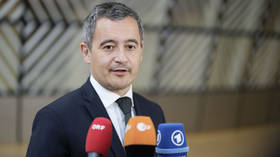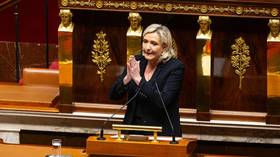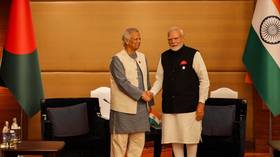Banning RT in EU did not work – MEP

Banning RT from EU airwaves has not worked, bloc officials and media analysts in NATO states have claimed in interviews with French weekly magazine L’Express. Regulators are reportedly struggling to respond to what they perceive as a growing threat presented by foreign state actors interfering in EU affairs.
According to a allegations in a piece published on Friday, certain “authoritarian countries,” including Russia, China, Iran, Qatar, Turkey, Azerbaijan, and others, have been working to undermine the bloc.
Nathalie Loiseau, the head of the Subcommittee on Security and Defense in the EU Parliament told the magazine “I have long kept a list of all these maneuvers, which range from traditional disinformation to open sabotage. But today there are too many, I can no longer count them.”
The efforts already made to tackle alleged foreign interference have not yielded the desired results, experts say. Measures such as banning Russian state-affiliated media, including RT and Sputnik, and expelling hundreds of alleged spies – Russian diplomatic personnel – have proven ineffective.
“These measures have prompted the Kremlin to innovate in the way it collects information about our societies,” a researcher associated with the NATO-backed Atlantic Council, Elisabeth Braw, said.
Now, Russian intelligence is using covert means, recruiting dissenters among the local populations in the EU, Vilmantas Vitkauskas, the head of Lithuania’s National Crisis Management Center, claims.
“On Telegram, Russian services target discussion groups where there is a certain mistrust of local governments and offer money against targeted actions, such as fires. Acts paid in cryptocurrencies between €20 and €50,000. For our services, it is hard to intervene because they are often unsuspecting profiles, without any criminal record,” Vitkauskas alleged.
To deal with this, the bloc urgently needs its own counterintelligence service, Loiseau insists, blaming the EU’s presumed inability to tackle foreign threats on “the difficulty of coordinating 27 intelligence services, some of which have real security flaws.”
“We called for the creation of a counter-intelligence leadership in Brussels, but in vain,” she said.














